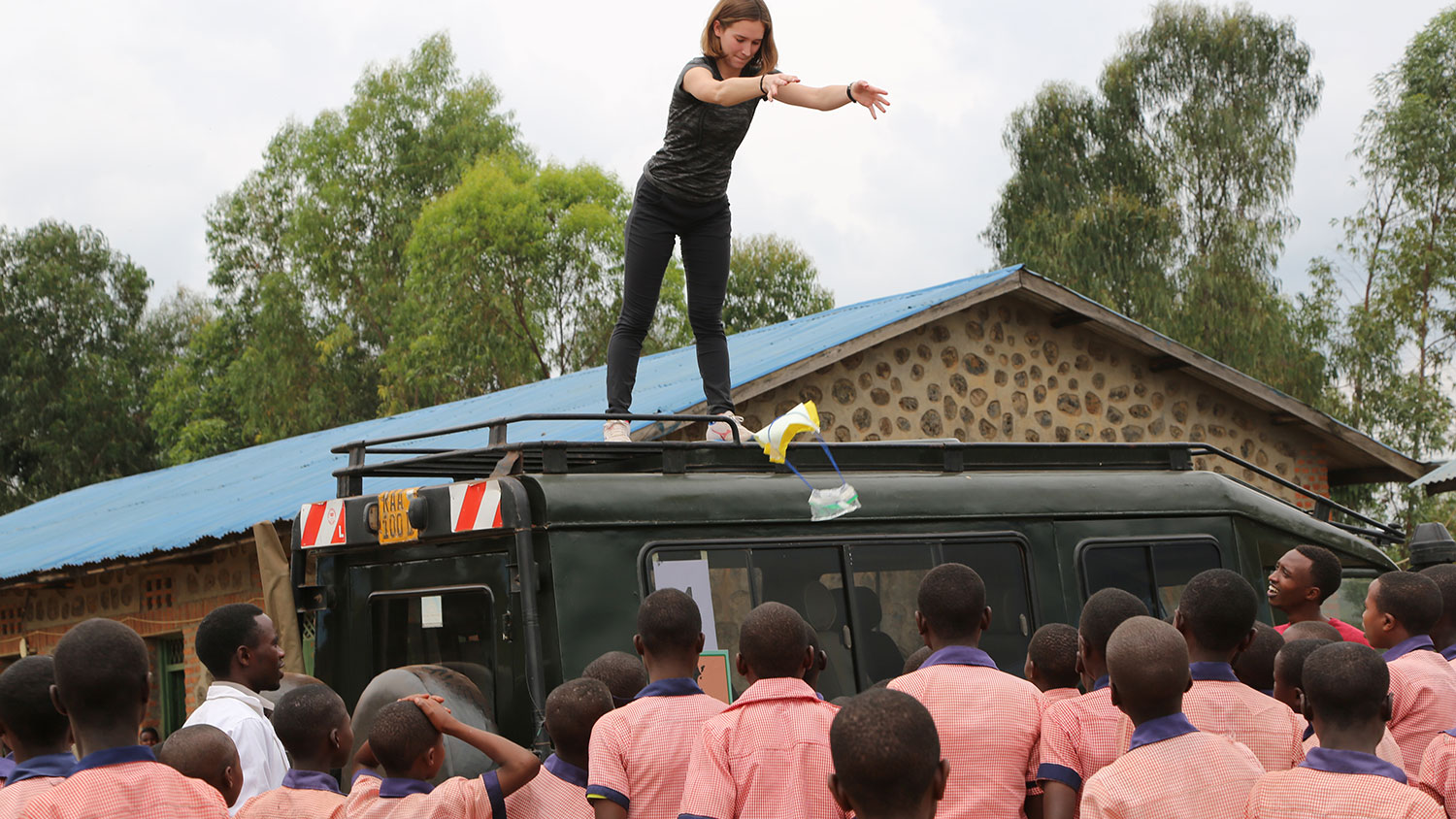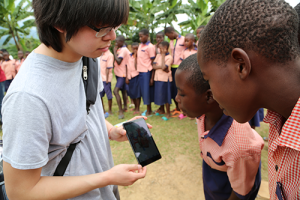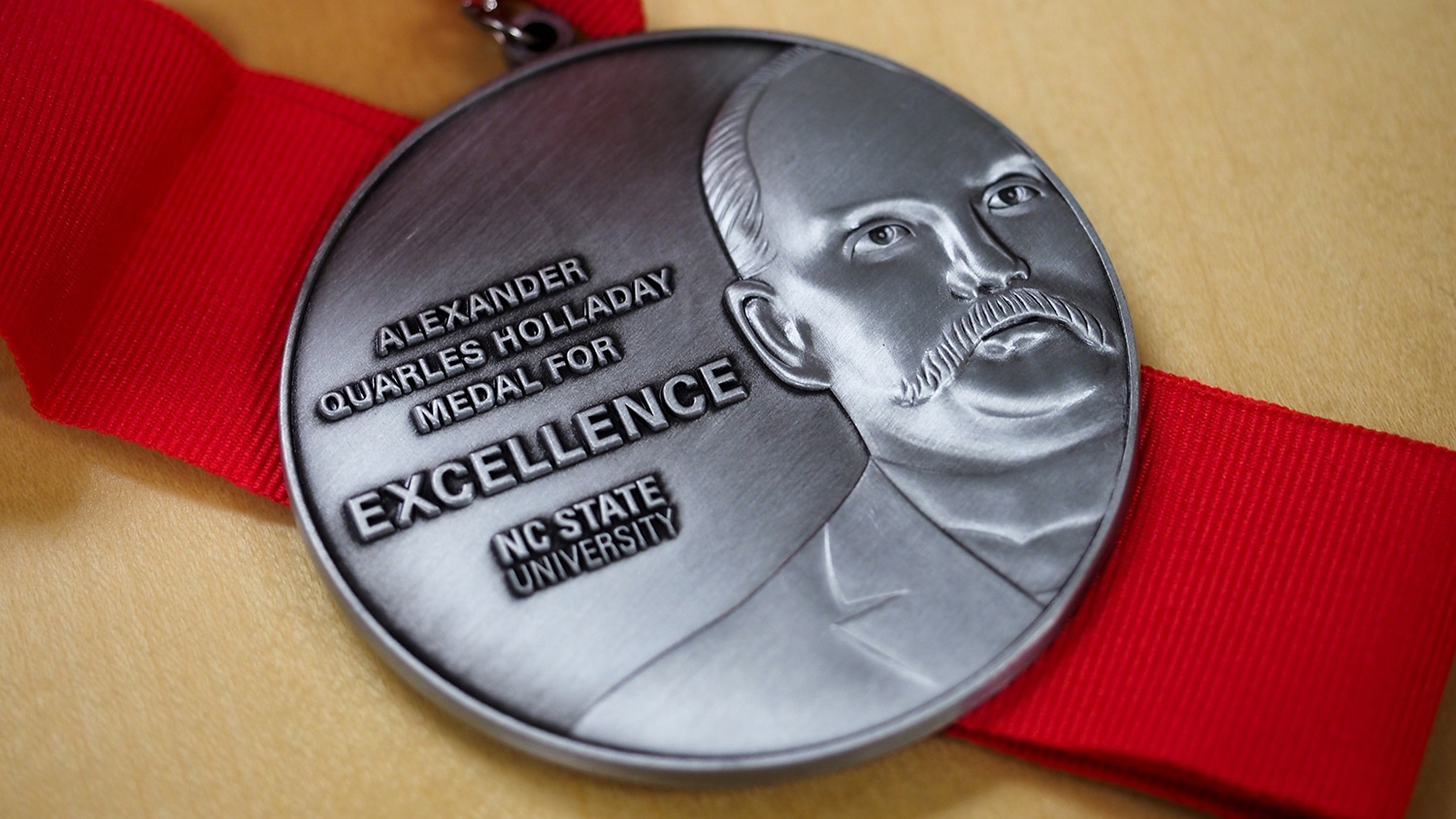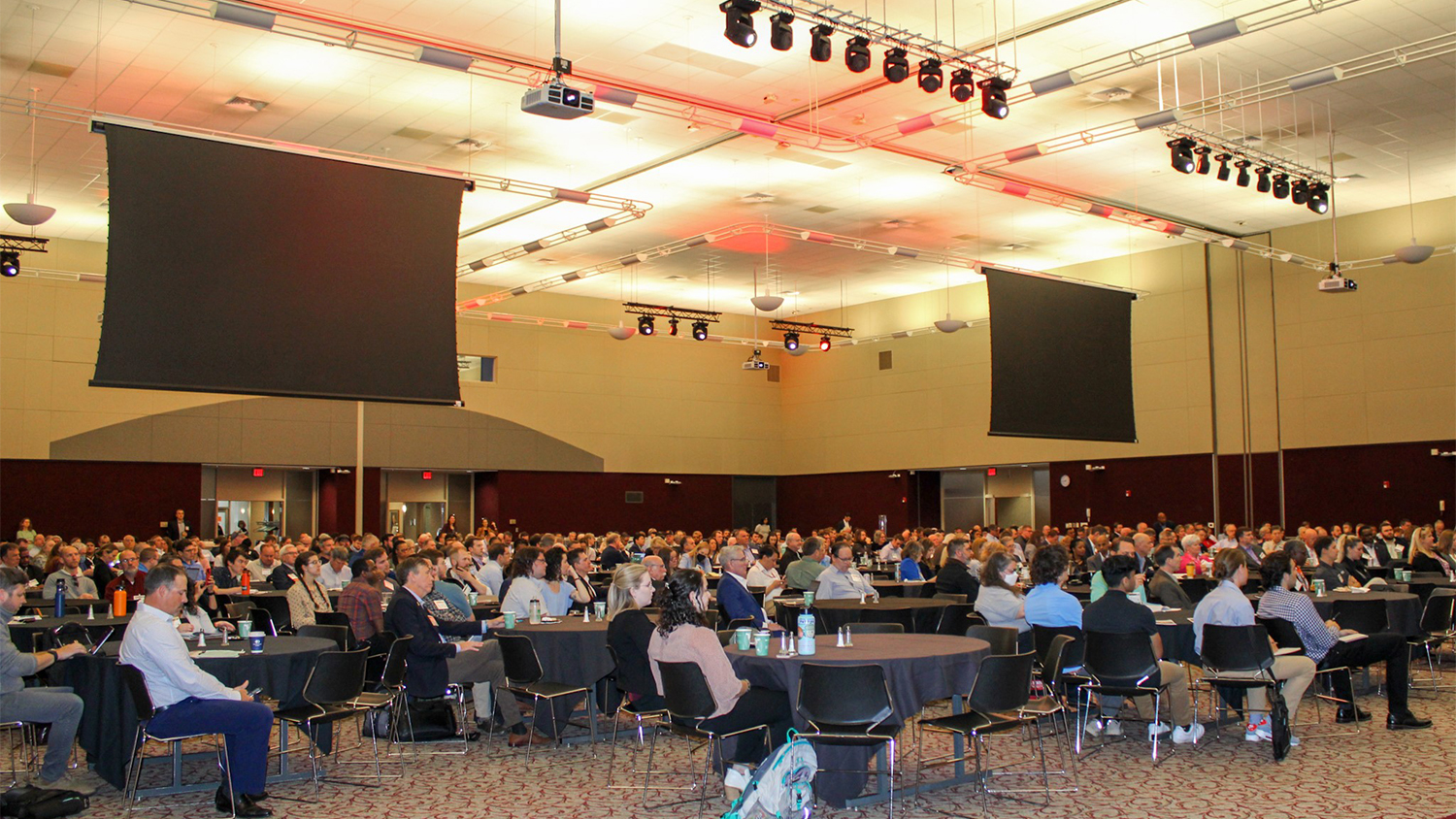Engineering lends a helping hand

Undergraduates introduce engineering to Rwandan students during Alternative Spring Break trip
The experience meant a great deal to the NC State engineering students:
Chemical engineering major Josh Jimison said, “This ASB trip opened my eyes to life outside North Carolina. Everyone I met in Rwanda was incredibly kind, and they were open to sharing their story and culture. From discovering new foods to learning amazing dances, the students and people we encountered were generous to teach us about life in Rwanda. Rwanda is known for being the land of a thousand hills, but all I noticed were a thousand smiles from everyone we met.”
Chemistry and psychology major Bryce Royal said, “I found there were instances throughout my time in Rwanda where I had to check my own energy and privilege in a way to make sure that it was appropriate for an environment I myself was not familiar with. It was a gentle reminder that the world does not revolve around me and only my experiences. I am thankful for these moments and the impact it had on me.”
NC State engineering and business major Tyler Brading climbed on top of a jeep to test out the results of the morning parachute drop activity for students in the Nkumba primary school. Teams of the young students had designed and created small parachutes holding weights. To test the parachutes, Brading dropped one after the other off the jeep surrounded by laughing students below.
In March, Brading with other NC State students and faculty and staff members had traveled to the Musanze district of Rwanda. They were there to hold four days of science, technology, engineering and mathematics (STEM) workshops in five rural primary schools as part of an NC State Alternative Service Break (ASB) trip.
The Rwandan schools welcomed the STEM workshops. Despite a legacy of poverty and genocide in their country’s tragic past, the hardworking and resilient people of Rwanda have built a strong tourism industry with ambition for more. Citing the importance of STEM education to the future of Rwanda, the country’s government has directed that it be taught in their schools.
The College of Engineering’s Women and Minority Engineering Programs (WMEP) started STEM education trips to Rwanda in 2018.
Dr. Laura Bottomley, director of WMEP, explained why international travel is important to their engineering students. Engineering is really a global endeavor, she explained. If you are going to engage in global endeavors, you have to have gotten out of North Carolina and understand both the differences and similarities of people in other places.
The 2020 trip was WMEP’s third student trip to Rwanda. Angelitha Daniel, director of Minority Engineering Programs, Kim Pender, WMEP program coordinator, and Bottomley have conducted all of the trips.
Student-Led Trip
WMEP chose to partner with non-profit organization Mothering Across Continents (MAC) for the 2020 trip.
Bottomley said that they were trying to build a sustainability model that would allow them to go back each year and work with the same people so that they could have more of an impact in the schools. They thought MAC could help make that happen.
MAC provided key resources for the 2020 trip. Eric Mupenzi, education coordinator for MAC, and Alice Kubwimana, acting country director for MAC, served as liaisons between the NC State group and the primary schools.
“Without the assistance and input of Alice and Eric, we would never have been able to translate our understanding of engineering to a place where students who live without electricity and running water can not only appreciate it, but engage in solving problems that are meaningful to them,” Bottomley said.
MAC also selected the schools, provided Kepler University students to serve as interpreters and purchased tablets for distribution to the primary schools. NC State students loaded activities onto the tablets and showed teachers how to use them.
NC State student leaders Tashana Flewwellin (senior, textile engineering and political science) and Jeremy Petersen (B.S. in electrical engineering, May 2020) organized the 2020 trip and managed it in Rwanda.
During the planning phase, they worked closely with Pender. She helped them with logistics, including finances, but the student leaders organized everything from transportation, accommodations, assignments and supplies to outings for the engineering students during their free time in Rwanda.
Dr. Kanton Reynolds, teaching associate professor and director of undergraduate programs in the Edward P. Fitts Department of Industrial and Systems Engineering, went on the trip and praised the student leaders. “There was never a point when I thought I would have to jump in and take control. Our trip leaders, Jeremy and Tashana, did a fantastic job.”
In the Schools

On the first day of the workshops, small NC State teams dispersed to primary schools: Mwiko, Kinoni, Karugunda, Nkumba and Birwa. Most of the teams worked with P6 students who were 11 to 12 years old.
During the workshops, the teams introduced the Rwandan students and their teachers to engineering and the engineering design process through team-building exercises, reading activities in English and simple hands-on activities to teach basic physical principles. By the end of the week, the Rwandan students embraced the engineering design process: ask, imagine, plan, create and improve.
Although English is taught in the schools, communication problems, especially with regard to the readings, presented an unexpected challenge on the first day.
The NC State teams adapted.
After that first day, teachers and Kepler students helped paraphrase stories and directions in Kinyarwanda, the native language.
Bottomley also realized that many of the books they had chosen were difficult for the Rwandan students to relate to.
“I purchased some stories that originated at least in eastern Africa… We talked to the students about the countries these stories originated in, and they were able to understand and relate to them,” she said.
Daniel said, “The first day was very challenging. Then it was difficult to leave. You just think about how quickly you adapt and make things work.”
The rest of the week went well.
Materials science and engineering major Mack Vinson said, “I was really stressed after the first day because of the language barrier, but the next day I woke up and said, ‘We can do this.’ By the end of the week, students were asking questions relevant to the engineering process.”
On the last day, the Rwandan students and their teachers honored the NC State teams with celebrations, including traditional dances.
WMEP plans to take another group of NC State students back to the same schools when the pandemic allows.
Bottomley said, “The establishment of a program like this, ensuring it really is a two-way street, takes time and a lot of work. I’m 100-percent confident that we got more out of this trip than they did this time, and I want to persist until it is at least mutual.”
Return to contents or download the Fall/Winter 2020 NC State Engineering magazine (PDF, MB).
- Categories:


